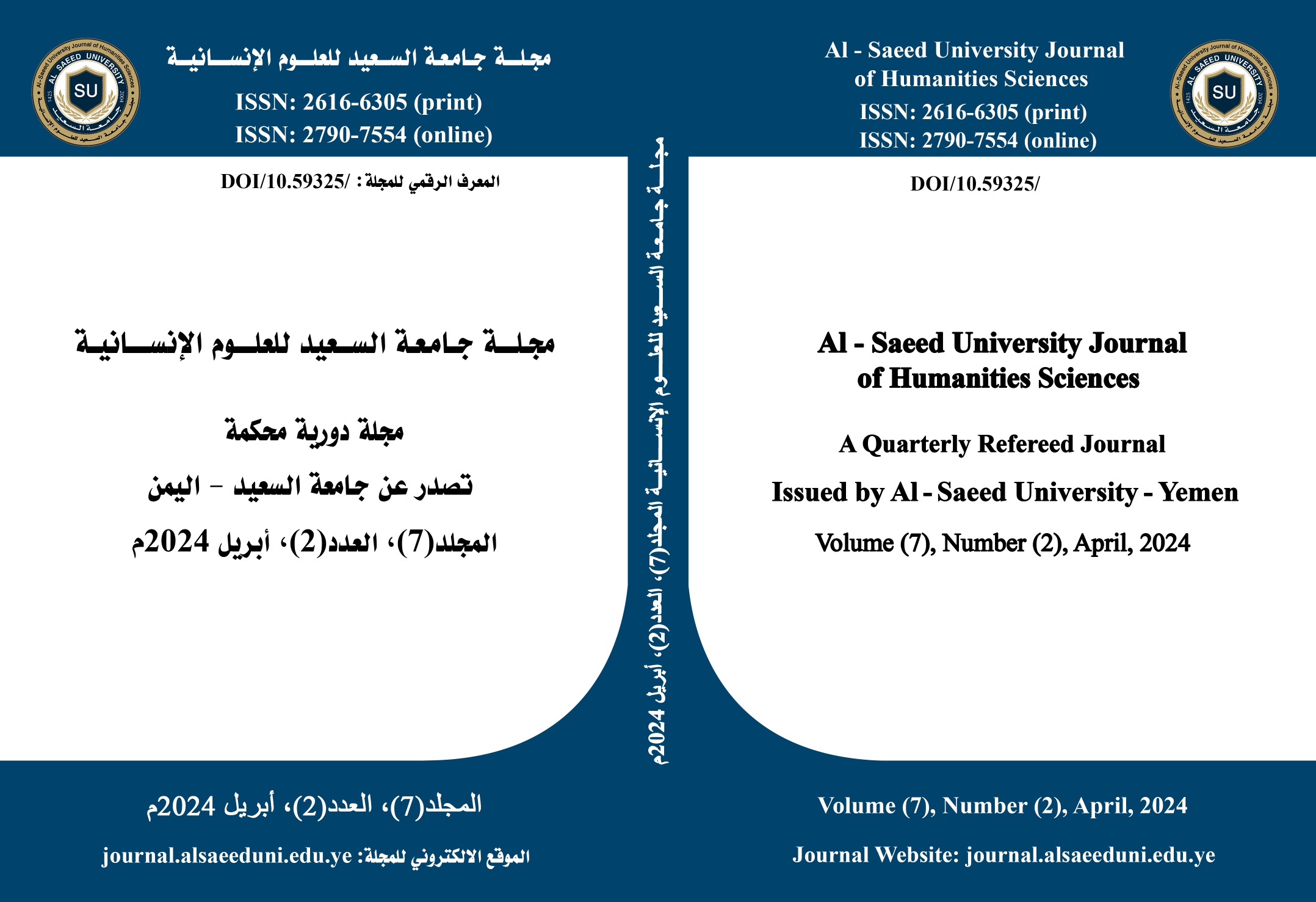Contemporary Slaveries and the Position of the Holy Quran Towards Them
DOI:
https://doi.org/10.59325/sjhas.v7i2.211Keywords:
slavery, Contemporary slaveryAbstract
This research aims to clarify the concept of contemporary slaveries, identify their types, and highlight their dangers on individuals and society. It also explores the role of the Holy Quran in confronting these slaveries, drying up their sources, and warning against their risks. The research begins with an introduction that outlines the objectives, reasons, and importance of the study, as well as addressing the research problem and reviewing previous studies related to this topic. The research adopts a descriptive-analytical approach, along with an inductive method, to present new insights on the subject. The structure of the research consists of two main sections: The first section defines contemporary slaveries and categorizes them into two aspects: intellectual slavery and the slavery of desires. The second section discusses the position of the Holy Quran towards contemporary slaveries and comprises three aspects: the Quran's stance on intellectual slaveries, its stance on the slavery of desires, and its stance on forced slaveries. The research concludes with several findings, including Contemporary slavery refers to the subjugation of individuals through their thoughts, desires, or through forced imposition of slavery to exploit their intellectual and physical capacities. Contemporary slaveries can be classified into three types: intellectual slavery, slavery of desires, and forced slavery. These classifications are based on the weaknesses of humans, which, if left unguarded, can lead them to be enslaved and subjugated.
Contemporary slaveries have catastrophic and destructive effects on the lives and behaviors of individuals, communities, and nations. They deviate individuals from their natural disposition and divert them from the worship of God alone, who deserves to be worshipped.
The stance of the Holy Quran towards contemporary slaveries is clear and explicit in its rejection of them and its mission to liberate people from them. One of the Quran's main objectives is to dedicate individuals' thoughts, spirits, and behaviors solely to God, without any partners.
The research concludes with recommendations to preachers and reformers, emphasizing the importance of raising awareness about the dangers of succumbing to these slaveries. They also urge leaders and people to promote goodness, justice, and to confront the forces of evil that exploit their media and technological capabilities to manipulate words and concepts, thereby producing disguised forms of contemporary slaveries.
Downloads
Published
How to Cite
Issue
Section
License
Copyright (c) 2024 نصر عبد الغني مطهر، أزهار عبد الرقيب عبد الحميد السامعي

This work is licensed under a Creative Commons Attribution 4.0 International License.
copyright is retained by the authors. Articles are licensed under an open access Creative Commons CC BY 4.0 license, meaning that anyone may download and read the paper for free. In addition, the article may be reused and quoted provided that the original published version is cited. These conditions allow for maximum use and exposure of the work.



